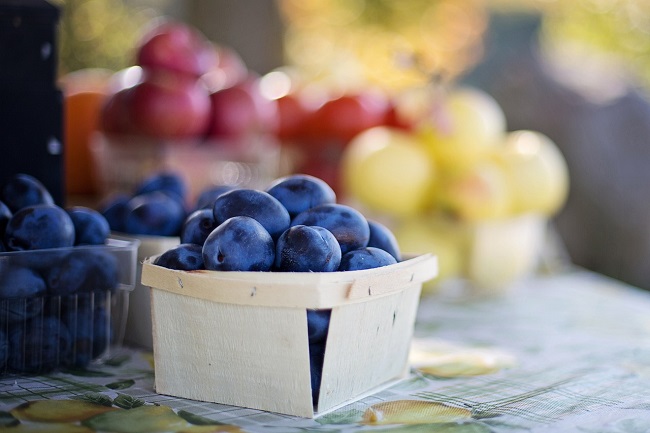
In the last five years – in large part due to the coronavirus pandemic – the food and beverage industry has witnessed many changes. From to-go cocktails to home-baked goods, state and local officials have been pushing to soften the rules for small businesses to turn a profit.
Take the cottage food industry for example: In just the last year, at least nine states amended or adopted cottage food laws, making it easier to own and operate a cottage food business. Now the sale of cottage food is allowed in all 50 states and the District of Columbia.
But be aware that the rules vary by state.
Before starting a cottage food business, it’s important to know the ins and outs of the cottage food industry and its history.
History of food safety regulation
Historically, food was produced and eaten at home until the Industrial Revolution pushed more people to join the workforce and spend most of their days away from home. As cities grew, so did the food business. As the food business grew, so did the need for more accessibility and safety.
Early 20th-century literary reports and scientific studies, like Upton Sinclair’s The Jungle and Dr. Harvey Washington Wiley’s “poison squad,” illustrated a barely regulated food system. Recognizing the dangers, the U.S. Congress passed the Federal Meat Inspection Act and the Pure Food and Drug Act in 1906. These federal laws strengthened food safety across the nation. However, in the late 20th century, states were able to begin passing laws that relaxed food safety regulations for certain businesses.
This made way for small farmers and “cottage food” producers to start small businesses out of their homes.
What are “cottage foods” and cottage food laws?
Generally, “cottage food” is food produced in a home kitchen not inspected by either a federal or state food safety agency. Approved cottage food products include items like popcorn, baked goods, granola, pasta and candy.
Cottage food laws not only define what qualifies as cottage food products, but they also define the rules under which individuals using home kitchens to produce and sell cottage food products must abide. While the laws vary by state, they typically include guidance for registration and licensure, labeling and advertising, taxation and sales and distribution.
Most states allow producers to obtain a cottage food permit as long as they produce food that poses a low safety risk and their annual sales are below a certain dollar threshold. Regulators at the state and local levels primarily oversee the cottage food industry. Further, state food safety laws prohibit selling “adulterated” and “misbranded” food, as federal food safety laws define those terms.
Where can I sell cottage food?
Because of state regulations on the cottage food industry, producers typically can only sell food intrastate and cannot sell food interstate. This means most cottage food producers cannot sell their products across state borders.
Cottage food is typically sold at farmers’ markets or other local venues or events. While some states are now allowing online sales, the online cottage food sellers located in the allowing states must ensure their products are only sold to addresses located in the same state where their cottage food business is registered.
If a cottage food producer wishes to deliver a product to an out-of-state address, they should contact the appropriate federal, state, and local food safety authorities to ensure compliance with all applicable laws and regulations.
Are “Food Freedom Acts” related or applicable to cottage food operations?
Yes. State food freedom acts are very similar to cottage food laws. Typically, food freedom acts amend prior adopted cottage food laws, loosening the restrictions placed on the commercial sale of homemade food. For example, in July 2021, the Arkansas Food Freedom Act replaced the Arkansas Cottage Food Act and expanded the homemade food category and where homemade food can be sold.
What do I need to know if I want to sell cottage food?
- Know the laws – Understand the requirements under the state’s cottage food law and/or food freedom act. Oftentimes, these laws can be confusing and may not give aspiring cottage food producers all of the information needed to start a cottage food business legally.
- Do your research – There is publicly-available information from the state government, state land-grant university, and other reliable sources to assist in deciphering the laws and regulations.
- Seek legal counsel – To ensure compliance with the applicable federal, state, and local laws, in addition to regulations and ordinances governing items, such as qualified cottage food products, registration and licensure, labeling and advertising, taxation and permissible route-to-market options.
The bottom line is that while cottage food businesses are generally less regulated than commercial food retailers, understanding your state’s cottage food laws and food freedom acts is essential to establishing a legal, small business from your kitchen.

Hannah Becker is a shareholder in GrayRobinson’s Tampa law firm office and a member of the firm’s National Alcohol Industry and National Food Law Teams. Her practice concentrates on advising companies and entrepreneurs in heavily regulated industries with regard to compliance with federal, state, and local statutes and regulations that govern the manufacturing, importation, distribution, marketing, sale, and consumption of regulated products. Hannah’s practice in food product regulatory and liability counsel includes broad experience advising on matters such as labeling, licensing, advertising, and product issues.

Jana Caracciolo is an associate at GrayRobinson, providing an astute knowledge of food labeling regulation and interpretation and counsel related to food safety-related issues. She provides legal counsel and compliance guidance to farmers, ranchers, producers, processors, distributors, and retailers on compliance issues with the Food and Drug Administration (FDA), the Department of Agriculture (USDA), and various state agencies’ requirements on food safety, food and beverage labeling and packaging, and product development. Prior to joining GrayRobinson, Jana served as a staff attorney at the National Agricultural Law Center, researching and analyzing food safety and food labeling issues.



